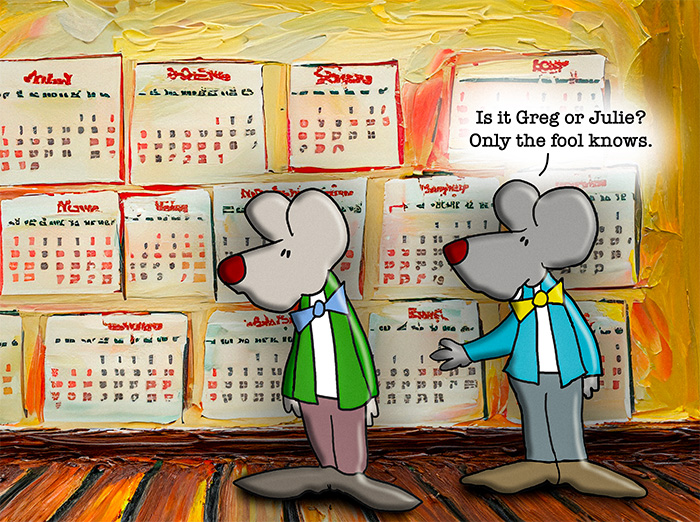It’s been April Fool’s Day all day long. And if you are reading this on the second of April, well, it was yesterday, all day long. Did you fall victim to a prank? Or did you trick someone?
I don’t like to be tricked. It makes us feel gullible. Or doltish.
But how in tarnation did April Fool’s Day get started, anyway? I’m sure we’ve gone over this before, but just to refresh my memory:
Some historians speculate that April Fools’ Day dates way, way back to 1582. That is the year when France switched from the Julian calendar to the Gregorian calendar. The Council of Trent said it had to be that way, so everyone burned up their old Julian Far Side calendars.
Anyway, in the Julian Calendar, the new year began with the spring equinox around April 1.
Well, obviously, back then, news traveled slower. No internet. Heck, newspapers were barely a thing. I mean, the Gutenberg Press didn’t appear for another 30 years or so, in 1609. So, a lot of people were slow to get the news about the new Gregorian calendar being in play. As such, they failed to recognize that the start of the new year had moved to January 1.
But the New Year’s Eve parties didn’t stop. Those same people continued to celebrate it during the last week of March through April 1. And because of this, they quickly became the butt of jokes and hoaxes. They were nicknamed “April Fools.”
These pranks included having paper fish placed on their backs and being referred to as “poisson d’avril” — which means “April Fish.” It symbolized those people as young, easily caught fish. Gullible. Dopes.
And that is most likely how it started. There are a couple of lesser theories out there. But the fact of the matter remains. It stuck. You know, it’s been 442 years since the calendar flipped. Nobody is still wearing their New Year’s party hats at the end of March. So yes, for some reason, the celebration of making someone else the foolish fish continued.
What is the attraction to this? Does pulling a prank make us feel clever? Does it give us the sense that we are somehow smarter than someone else? Or is it attention-seeking? Or? Simply plain old fun?
Shoot. Entire TV shows and movies have been devoted to pulling pranks. Candid Camera with Alan Funt. Or Punk’d, created by Ashton Kutcher. Scare Tactics with Tracy Morgan. And on and on.
George W. Bush, the king fool, couldn’t quite get it right. “Fool me once, shame on you. Fool me twice, shame on me.” That’s how it is supposed to go. But he skittered out, “There’s an old saying in Tennessee—I know it’s in Texas, probably in Tennessee—that says, ‘Fool me once, shame on… shame on you. Fool me—you can’t get fooled again.”
All I know is that you have 364 days until April Fool’s Day happens again. No fooling.
Until then, tell the truth.
Always.
“””””””””””
“The truth is like a lion; you don’t have to defend it. Let it loose; it will defend itself.” – Saint Augustine
“””””””””””””
“In a time of deceit telling the truth is a revolutionary act.” – George Orwell
“””””””””””””
“Half a truth is often a great lie.” – Benjamin Franklin
“””””””””””””
Dumb old Gullible Fish
